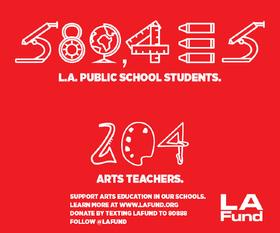Bullying is, sadly, not an uncommon occurrence in middle schools across the country. However, the decision by a judge in Florida, in response to an extreme incident of bullying, is anything but ordinary. While some applaud the judge’s decision to take strict action against a bullying student, others wonder whether the judge went too far in his ruling. Was the judge fair in this case?
Bullying to the Extreme
The incident in question took place in Duval County, one of the largest school districts in Florida, and in the U.S. A student at Oceanway Middle School, Aria Jewett, was lured away from school grounds by a group of classmates. One of the students, Paris Cannon, allegedly dragged Jewett by the hair and slammed her head into a stone wall. She also slapped and kicked Jewett while Jewett was curled up on the ground in a fetal position.
According to First Coast News, Jewett was taken to the hospital by ambulance after the attack, where she was treated for life-threatening injuries, including a skull fracture and a severe concussion. Jewett also suffered contusions and abrasions to the scalp from the attack. She spent the night in the hospital before she was released to go home and recover.
Friends of Cannon were with the girls at the time of the attack, and one filmed the incident. The video showed Cannon's beating, as well as two other girls in the background, laughing and cheering Cannon on as it took place. A nearby witness said Jewett collapsed after the attack while the other three girls went back to the school.
Justice Sought
Jewett’s mother, Melissa Thomas, went to court after the attack to keep Cannon out of Oceanway Middle School and away from her daughter. Thomas told First Coast News, “This bullying with children and kids is ridiculous. I don’t want another parent to go through any of this; what I just went through is awful. I could have been burying my child.”
Henry Davis, the judge overseeing the case, found Cannon guilty of felony battery. At that time, Jewett's attorney asked that Cannon be removed from Oceanway Middle School. Judge Davis took his ruling further and banned Cannon from all Duval County Public Schools. On News 4, the judge stated, “Children ought to be able to go to school and feel safe. They should not have to worry about being beaten up, given physical injuries, and permanent injuries at their schools. The schools belong to everybody, not just one person or group.”
The attorney for Cannon, Richard Brown, told News 4 the judge’s decision was “astonishing and unprecedented.” Brown also stated that the ruling went beyond what the initial petition asked for. Brown explained that Cannon lives with an older sister who is working to support them. Her parents live in another state. The living situation rules out some education options, like homeschooling and private school, which leaves few choices in getting Cannon back into a school environment under this ruling.
Brown also noted that minors should be enrolled in school under the law. By stripping Cannon and her guardian of most options, Judge Davis makes it nearly impossible for Cannon to follow the law. Brown stated that Canon has a right to an education so that he will appeal the judge’s ruling.
Justice Served?
However, Thomas and her attorney, John Phillips, believe that the judge's ruling was fair. In a separate report, Thomas told First Coast News, “I feel like getting a little justice.”
Phillips agreed that while the judge’s ruling was bold, it was fair. He told First Coast News, “For a student to be thrown out of an entire school system because she is such a detriment to that school system is huge.” Phillips also said that Cannon has become known for posting videos of her fights with other students online, indicating she is a serial bully.
Judge Davis stated that both children and parents need to know there will be consequences for their bullying behavior. He added there is no excuse for “what is taking place in our school.” Davis said he is troubled that students are dropping out of school because they don’t feel safe there, so he is taking a step in initiating severe consequences for students who engage in this behavior.
Some residents of the community also agree with Judge Davis’s ruling. Kimber Goldsmith and Tammy Arias, two salon employees near the middle school, told First Coast News they thought the judge made the right decision. Both of the women have children in middle school.
“I agree with the judge,” Goldsmith stated. “If she is going to bully at this school, she is going to bully at another school. Evidently he had reasons not known to us to feel she should not go to school.”
Arias agreed, stating, “She has to learn a lesson, you can’t go around bullying kids and thinking that’s okay.”
However, Brown disagrees with the judge’s ruling and said he and his client will seek another hearing before Judge Davis. Brown will proceed with the appeal process if that request is not granted. Still, Brown warned that extending the process is not necessarily in Cannon’s best interests.
“While we are waiting, we have a young child, a 14-year-old child who basically doesn’t have anywhere to go to get an education,” Brown stated. “That is against the law.”
Questions? Contact us on Facebook. @publicschoolreview















